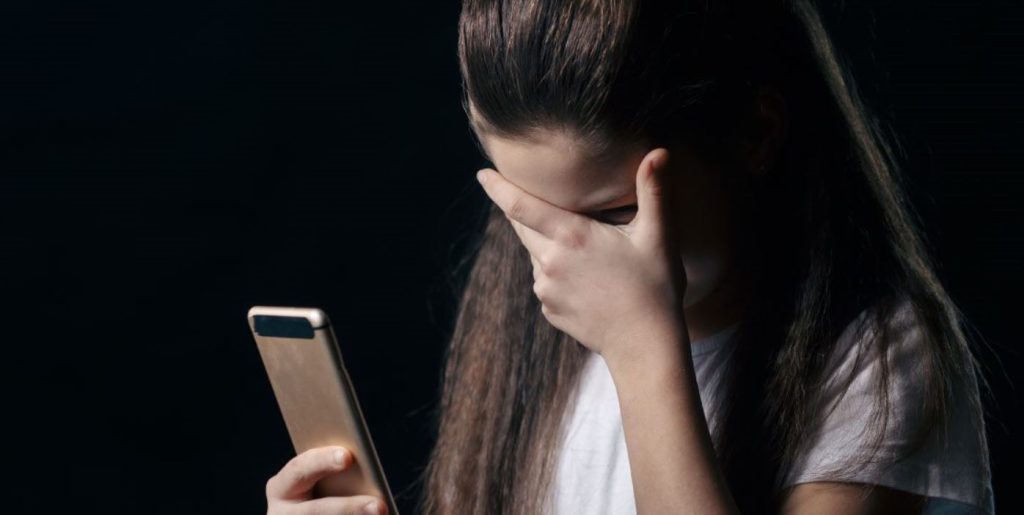In today’s digital age, children are exposed to various forms of media from an early age. Whether it’s television shows, movies, social media platforms, or video games, media plays a significant role in shaping their perception of themselves and the world around them. The impact of media on children’s self-esteem is a topic that deserves attention and understanding.
In this blog post, we will explore a lot of important issues regarding media and their impact on children’s self-esteem, including:
- The positive and negative effects of media on children’s self-esteem
- The role of parents in managing media influence
- Strategies to promote healthy self-esteem
- The importance of parental control apps
- The role of schools and educators
- And the media industry’s responsibility in shaping children’s self-perception
- The Role of Media in Shaping Children’s Self-perception
- Strategies to Promote Healthy Self-esteem in Children While Using Media
- The Importance of Parental Control Apps in Managing Media Exposure
- The Role of Schools and Educators in Media Literacy and Self-esteem Promotion
- Media Industry Responsibility and Ethical Considerations
- Conclusion: Empowering Parents to Protect and Enhance Children’s Self-esteem
The Role of Media in Shaping Children’s Self-perception
Media has a powerful influence on children’s self-perception. It shapes their ideas about beauty standards, success, and social acceptance. When children are bombarded with images of flawless models, extravagant lifestyles, and unrealistic portrayals of success, it can lead to feelings of inadequacy and low self-esteem. Additionally, media can also perpetuate stereotypes and create unrealistic expectations, further impacting children’s self-perception. It is crucial for parents and caregivers to recognize the influence of media and take steps to mitigate its negative effects.
Positive Impact of Media on Children’s Self-esteem
While media can have detrimental effects on children’s self-esteem, it can also have positive impacts. Positive portrayals of diverse characters, body positivity, and messages of inclusivity can help children develop a healthy self-image. Educational shows and media content that promotes positive values and skills can also contribute to children’s self-esteem by empowering them and building their confidence. Furthermore, media can provide a platform for children to explore their interests, talents, and creativity, which can enhance their self-esteem.
Negative Effects of Media on Children’s Self-esteem
Despite the potential positive impact, there are several negative effects of media on children’s self-esteem. One of the most significant concerns is the unrealistic portrayal of beauty standards. Children may feel pressured to conform to these standards, leading to body dissatisfaction and low self-esteem. Moreover, the media can promote materialism and consumerism, creating a sense of inadequacy if children cannot keep up with the latest trends or possessions. Cyberbullying and online harassment are also prevalent in the digital world, causing significant harm to children’s self-esteem. It is crucial for parents and caregivers to be aware of these negative effects and take appropriate measures to protect their children’s self-esteem.
Parental Role in Managing Media Influence on Self-esteem
Parents play a vital role in managing the impact of media on their children’s self-esteem. Open communication and active engagement with children about media content can help them develop critical thinking skills and a healthy skepticism toward media messages. Setting limits on screen time and encouraging a balanced lifestyle can also protect children from the negative effects of excessive media consumption. Additionally, parents should focus on building a strong foundation of self-esteem in their children by providing love, support, and encouragement. By fostering a positive self-image and teaching resilience, parents can mitigate the harmful effects of media on self-esteem.
Strategies to Promote Healthy Self-esteem in Children While Using Media
To promote healthy self-esteem in children while using media, certain strategies can be implemented. Encouraging media literacy is essential, as it helps children develop a critical eye toward media messages and understand the techniques used to manipulate perception. Engaging in media together as a family and discussing the content can provide opportunities for dialogue and teach children to question media portrayals. Encouraging a variety of activities beyond media, such as sports, arts, and socializing, can also foster a well-rounded sense of self and reduce reliance on media for validation.
The Importance of Parental Control Apps in Managing Media Exposure
Parental control apps can be valuable tools for parents in managing their children’s media exposure. These apps allow parents to:
- Set limits on screen time
- Block inappropriate content
- Monitor their children’s online activities
By utilizing these apps, you can create a safe digital environment for your child or children and ensure that media consumption does not negatively impact their self-esteem. However, it is important for you to strike a balance between monitoring and respecting your children’s privacy, as excessive control can also have adverse effects on self-esteem and trust.
While some parental control apps work only on certain phones or computers, others are multiplatform. That means you can use them to set parental controls on Windows, Mac, Android, and iOS devices. So, before selecting a parental control app to install on your child’s devices, make sure to check and compare their specifications and compatibility. Also, consider your budget because not all of these apps are free. Albeit they tend to offer worthwhile service for the price they charge.
The Role of Schools and Educators in Media Literacy and Self-esteem Promotion
Schools and educators also play a significant role in promoting media literacy and self-esteem among children. Integrating media literacy education into the curriculum can empower students to navigate the digital world critically. By teaching them to analyze media messages, identify biases, and question unrealistic portrayals, educators can equip children with the tools to protect their self-esteem. Additionally, schools can create a supportive environment that celebrates diversity and promotes inclusivity, fostering a sense of belonging and self-worth among students.
Media Industry Responsibility and Ethical Considerations
The media industry has a responsibility to consider the impact it has on children’s self-esteem. By promoting realistic and diverse representations, avoiding harmful stereotypes, and providing positive messages, the media industry can contribute to the well-being and self-esteem of children. Additionally, ethical considerations, such as responsible advertising practices and protecting children’s privacy, should be at the forefront of media production. Collaborative efforts between parents, educators, and the media industry can lead to a healthier media landscape for children.
Conclusion: Empowering Parents to Protect and Enhance Children’s Self-esteem
In conclusion, the impact of media on children’s self-esteem is undeniable. It has the power to shape their self-perception, both positively and negatively. Parents play a crucial role in managing media influence and promoting healthy self-esteem in their children.
Strategies such as media literacy education, open communication, and setting limits on screen time can contribute to positive self-perception. Additionally, the use of parental control apps can ensure a safe digital environment. Schools and educators also have a responsibility to foster media literacy and promote self-esteem.
Ultimately, by empowering parents, educating children, and holding the media industry accountable, we can protect and enhance children’s self-esteem in the digital age.



